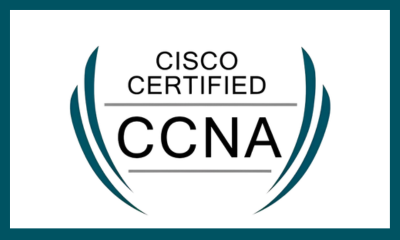The CCNA test v1.0 (CCNA 200-301) is a 120-minute test that is part of the CCNA certification. This exam assesses a candidate's understanding and abilities in network basics, network access, IP connection, IP services, security fundamentals, and automation and programmability. Candidates can prepare for this test by taking the Implementing and Administering Cisco Solutions (CCNA) course.
The following subjects are basic suggestions for the information that will most likely be covered on the test. Other relevant subjects, however, may feature on any individual delivery of the test. The instructions below may change at any moment without notice to better reflect the topics of the test and for clarity considerations.















